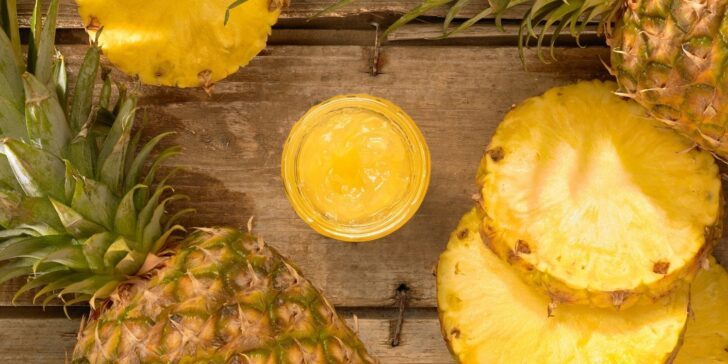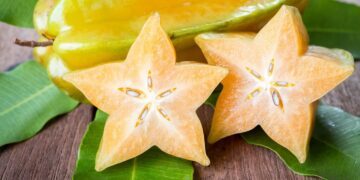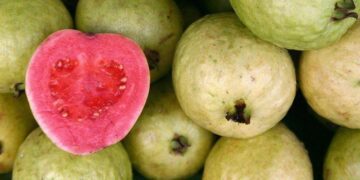Pineapples are a popular tropical fruit found in desserts, drinks, and cakes.
They’re one of the most unusual-looking tropical fruits, but their juicy zingy taste has us coming back for more.
Have you ever wondered where they come from or where they are grown today?
Check out these top ten fascinating pineapple facts!
Originally, “pineapple” was a name used for pine cones.

The first recorded mention of the word pineapple dates back to 1398.
Pineapples were first discovered in the Americas when the Europeans discovered the continent.
The first pineapple to be brought back to Spain was by Columbus in 1493.
When the settlers first saw them, they called them “pine apples” because they resembled pine cones found in Europe, and they were a fruit.
The first appearance of the word “pine apple” in an English publication was in the 1568 translation of André Thevet’s “The New Found World.”
A pineapple is not an apple or pine – it’s actually a berry!
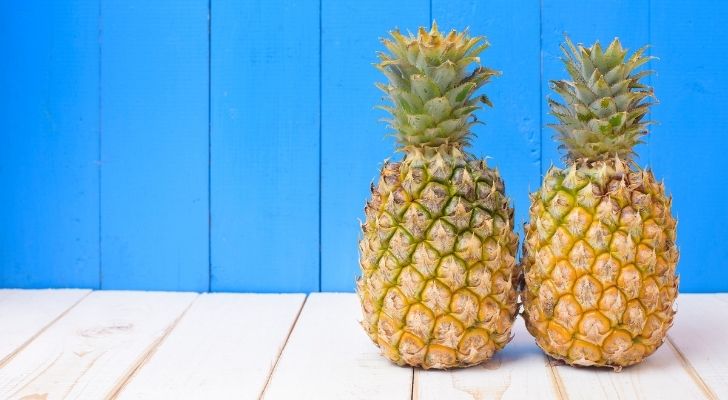
The name suggests that the fruit is part of the apple or pine family, however, it is not.
A pineapple is a combination of many berries that have fused and grown together to form the fruit.
This means it isn’t a singular fruit but multiple berries.
Pineapples contain an enzyme that breaks down human proteins.

It might sound a little crazy, but did you know pineapples can eat you?
Pineapples contain an enzyme called bromelain. When we chew pineapples, bromelain is released and starts to break down proteins in our mouth.
Fortunately, by the time it reaches our intestines, the enzyme is broken down, so we don’t have to worry about the pineapple eating away at us.
However, it is common to find farmers and workers on pineapple farms with faded or no fingerprints.
It is thought that this is because of that exact enzyme breaking down proteins on the skin of those handling pineapple.
In the wild, pineapple plants can live and produce fruit for 50 years.
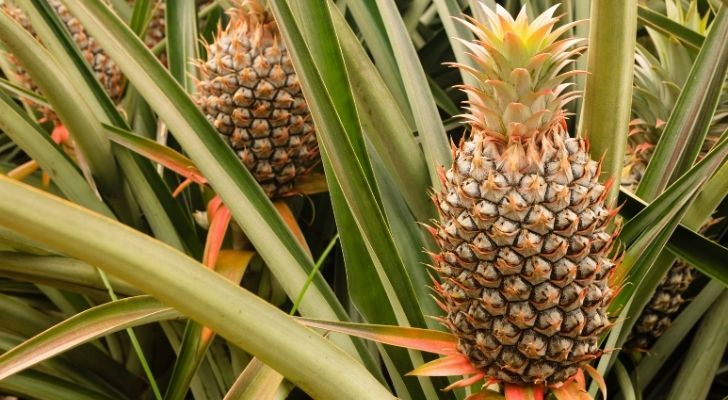
Once a pineapple plant roots, it takes around two to three years to mature and produce fruit.
A pineapple plant will, on average, produce one fruit at a time per year naturally. So a pineapple that lives for 50 years will produce 50 fruits within its lifetime.
Pineapple plants grow to around 3.3 to 4.9 ft. (1.0 to 1.5 meters) tall.
The best pineapples have the perfect balance of sweetness to acidity and are commonly grown at around 984 ft (300 meters) elevation.
You can grow pineapple plants by slicing off the top of a store-bought pineapple.
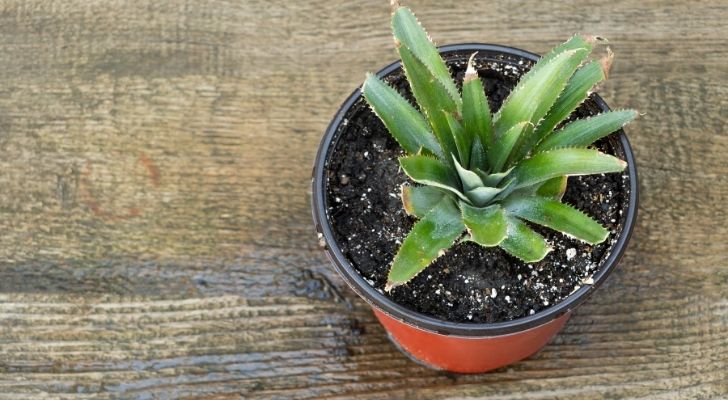
It has become a common experiment to try and grow plants from discarded pips, seeds, and peelings of fruit and vegetables.
All you need to do is remove the tip or stem of the pineapple from the fruity bit that you would typically eat.
Then you need to pick off a few of the leaves closest to the bottom of the stem and place them in a glass of warm water.
After a while, you will see tiny shoots forming, and this is when it is ready for planting in soil. Eventually, the plant will continue to grow, and sometimes it can reach up to 6 ft (1.8 meters) tall!
However, not all stems will successfully grow, and not all will produce flowers or fruit.
The world’s largest pineapple ever recorded weighed a whopping 18.3 lb. (8.28kg)!
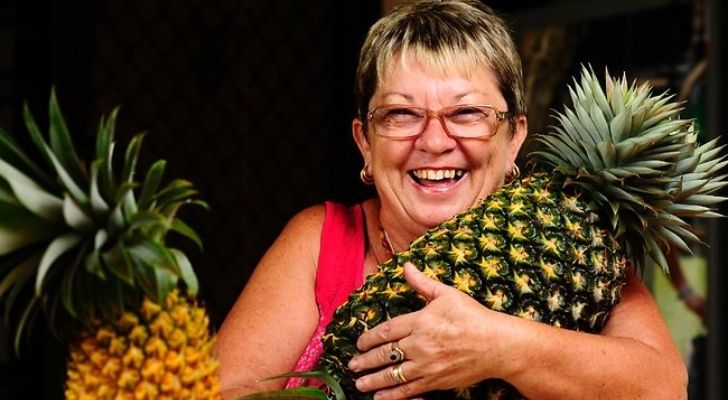
The magnificent fruit was recorded in 2011 and grown by Christine McCallum from Bakewell in Australia.
It measured 12.6 inches (32cm) in length and had a circumference of 26 inches (66cm).
The fruit had a total weight of 18.3 lb. (8.28kg)! That’s almost as much as a watermelon.
The scientific name for pineapple is “Ananas comosus.”
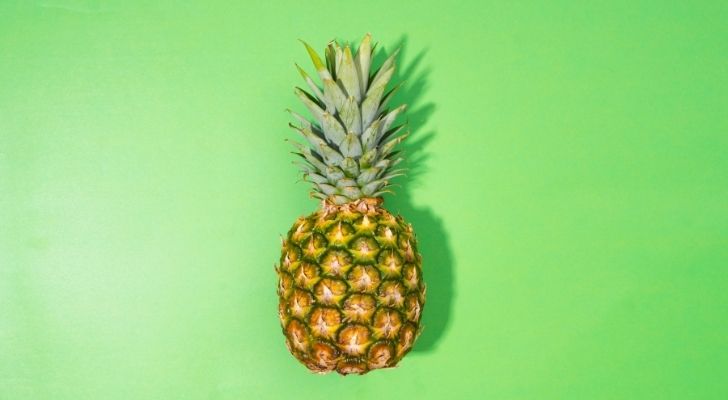
The scientific name for pineapple is “Ananas comosus,” which comes from the Tupi language.
The Tupi word “nanas” means pine, and “comosus” means tufted.
In Spanish, pineapples are called piña – which you’ve probably heard of in reference to the piña colada drink.
Costa Rica grows around 75% of all pineapples sold in Europe.
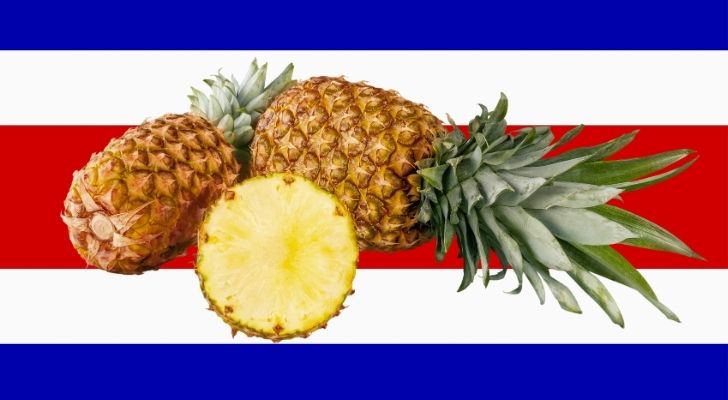
The majority of pineapples are grown in Latin America, with Costa Rica growing around 84% of the world’s pineapples.
Del Monte Fruit Company sells around 50% of the pineapples grown in Costa Rica. About 75% of pineapples sold in Europe are imported from Costa Rica.
Each year around 400 billion pineapples are farmed around the world.
Only 300 million of them come from Hawaii, which is about 13% of the global total.
The Hawaiian word for pineapple is “hala kahiki.”

In Hawaiian, “hala” means fruit, and “kahiki” means foreign. So “hala kahiki” translates to “foreign fruit.”
This is because pineapples originate from South America, specifically Brazil and Paraguay.
When they were taken over to Hawaii, the locals gave this name as they were an unknown fruit.
The Dole Plantation’s Pineapple Garden Maze in Hawaii has the record for the largest maze in the world.

In 2008 The Dole Plantation Maze in Hawaii was named the world’s largest permanent maze.
The Dole Plantation Maze spans over three acres (12140 square meters) with nearly 2.5 miles (4 kilometers) of paths.
The Dole Plantation is made up of over 14,000 Hawaiian plants.
This pineapple-shaped maze even has an app to use when entering to track your time and the stations you find.
Pineapples are one of the world’s most loved exotic fruits that originate from South America.
Costa Rica produces most of the world’s pineapples and contributes to over half of the European market.
Pineapples are berries that have fused to form a large juicy fruit. So next time you buy a pineapple, why not check out where yours came from.

